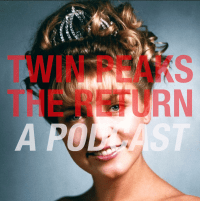Sports films are never really about the sport in focus, right? More often than not, the sport is a type of MacGuffin around which the plot is built (like with golf in the Mark Frost-scripted and produced movie The Greatest Game Ever Played) and is used to get us from point A to point B. Mark Kermode loves to argue his view that Jaws isn’t really about a shark, and the same can be said for the vast majority of sports films. For instance, let’s take a look at the top two films on AFI’s 10 Top 10 Sports list: Raging Bull and Rocky. Yes, both films are built around the sport of boxing, but neither of the two are actually about the punches taken inside the ring. Raging Bull is a biographical drama about the life, career, rise and fall of the middleweight boxing champion, Jake LaMotta. Based upon LaMotta’s memoir, Raging Bull: My Story, Martin Scorsese’s film shows us a man whose destructive nature and erratic instability caused more damage in his personal life than he ever did during his boxing career.
On the other side of the spectrum, Rocky is mostly fictitious underdog story about an average, working-class guy who gets his shot at gold. Most clichéd sports films would end with a Rocky Balboa-type winning the belt with only seconds left on the clock (how many of those films have you seen?), but Sylvester Stallone’s movie subverts all expectations by delivering an ending that is just about as appropriately meaningful as anything in the history of cinema. Rocky Balboa may have lost the bout, but he earned the respect of his opponent, Apollo Creed, he earned the admiration of the audience and his peers, and he walks away a winner after he embraces with the love of his life, Adrian Pennino. So, what does all this have to do with The Greatest Game Ever Played? Well, on the surface, there’s not much correlation between boxing and golf, but that doesn’t mean that those two movies haven’t influenced the cinematic language of a countless number of sports films in the years since their debuts.
Directed by the late, great Bill Paxton (his second and final directorial effort before his untimely death in 2017), The Greatest Game Ever Played mainly tells the biographical story of famed amateur golfer, Francis Ouimet (Shia LaBeouf), who at the age of just 20 years old became the first amateur to win the U.S. Open after his victory at the 19th U.S. Open at The Country Club in Brookline, Massachusetts in 1913. Dramatic movies that feature golf are few and far between, and that number is shortened even further when separating the good from the bad (it says it all when even the official PGA of America website lists Happy Gilmore and Caddyshack above The Greatest Game Ever Played on its ranking of the top golf movies of all-time), but Paxton’s film doesn’t pretend to be anything more than it is. Mark Frost’s script crafts a solidly entertaining picture that stays true to its roots, while also taking artistic license with its historical accuracy for dramatic effect. Clichéd? Yes, but likably enjoyable nonetheless.
To millions of people, golf truly is the greatest game ever played, but to others, it is just about the most boring thing imaginable. I happen to love the sport and was introduced to it by my father, who is as big a golf fan as you’ll ever meet (and a trophy-winning amateur back in his earlier years too). Now, I’ve been a football fan my entire life and found cricket at around the age of 12 in 2003 (I can still remember seeing Jimmy Anderson’s dyed red hair for the first time), but golf is a sport that was past onto me by my old man. He likewise loves football, but golf is his sport, which is why I had to jump on the chance to cover The Greatest Game Ever Played when the opportunity presented itself to me. Admittedly, it’s not the most glamorous sports movies ever made or one of the more relatable to a wide-reaching audience, but it’s still a damn fine film that deserved more attention than its undeservingly poor box office gross (it only made $15.4 million worldwide on a $25 million budget).
The wheel definitely hasn’t been reinvented and there’s probably not enough in The Greatest Game Ever Played to turn a hater into a fan, but what the movie lacks in originality it more than makes up for with a cast full of fine performers, a delightful attention to period detail, and some directorial flourishes that wouldn’t look out of place in the latest edition in the PGA Tour video game series. Seriously, the way Paxton directs the entire picture would make Michael Bay weak at the knees, as the camera often swoops and glides through the air like an eagle in all its majestic glory. And, as Roger Ebert notes, we even track from ball from tee to fairway and beyond as, “Paxton and his technicians have used every trick in the book to dramatize the flight and destination of the golf balls. We follow balls through the air, we watch them creep toward the green or stray into the rough, we get not only an eagle’s-eye view but a club’s-eye view and sometimes, I am convinced, a ball’s-eye view.”
It’s in these directorial accents that Paxton really turns what could be viewed as mundane and undramatic into something that has a life and vibrancy that only cinema can provide. We know we aren’t following the actual flight of the ball and it was created on a computer by a team of incredibly talented artists, but the visual flourishes perfectly enhance the fairy tale aspects of the story (after all, it is a Disney production). Similarly, let’s not forget the Rocky-inspired slow-motion montages that are sprinkled throughout, which add a knowing nod to the conventions of the genre and a wink to those who will forever have “Gonna Fly Now” on their workout playlist. The Greatest Game Ever Played is a crowd-pleaser, for sure, and some might argue that it’s too safe and too Disneyfied for its own good, but you’d have to be a real Scrooge to turn your nose up against a film that is as sweet-natured and genuinely heart-warming as this film is. Sometimes, we need a bit of formulaic Disney sentimentality.
There’s also a level of aesthetic authenticity to the film that just looks right without being lavishly distracting, and that’s something that should really be commended. Too often do period films try to hide the fact that there’s not much meat on the bones by overcompensating with sets and costumes that leave you in awe, but The Greatest Game Ever Played hits all the greens in regulation without the fear of going over par. One thing that is slightly too schmaltzy, however, is Brian Tyler’s quite epic orchestral soundtrack, which honestly could have been used to score any of Disney’s Pirates of the Caribbean movies. On its own, the score is some of the best work Tyler has ever composed during his vast and varied career thus far, but it’s simply the case of not being the right score for the movie. Something more controlled and understated would’ve worked much better for me, but again it’s that classic Disney way of trying to draw every emotion and tear out of you through any means necessary.
More than just a film about golf (although, surprisingly, over 50% of its runtime does actually take place on the golf course—including the entire second hour of the movie—which ends with Francis Ouimet’s U.S. Open victory), The Greatest Game Ever Played is about everyday normal people overcoming the odds and breaking down the walls of elitism. Golf is often viewed as a snobbish sport for the upper-class, and The Greatest Game Ever Played doesn’t shy away from those views and even presents the film’s golfing elite as the antagonists of the movie. Not that there really is a true villain as such, because the only real opponent you’re fighting against during a round of golf is yourself. There’s no Apollo Creed punching you in the face; instead, you have no control over the actions of your competitors, and your mental strength is called into question just as much as your technical skill. Just like Rocky Balboa, Francis Ouimet is a working-class nobody in the eyes of those above him.
Despite his clear talent at a young age, Francis’ initial attempt to qualify for the U.S. Open is scoffed at by the wealthy elders of The Country Club—because he caddies there and is therefore not a paying member—and his social status is questioned when they frown upon his inability to pay the $50 entry fee that would earn him a spot at the U.S. Amateur. His father, Arthur Ouimet (Elias Koteas), reluctantly lends him the money, but wants Francis to stop playing around and get a real job should he fail to qualify. Francis agrees and unsurprisingly falls at the final hurdle, putting an initial end to his dream. Again, it’s a story we’ve seen 1000 times and the archetypes of the supportive mother and the unimpressed father are as old as storytelling itself, but The Greatest Game Ever Played leans heavily on its commentary on class and wealth by giving us a story about the human condition, and a working-class person’s place within the world of the 1%. Not much has changed in the last 105 years, has it?
Once Francis actually gains entry to the U.S. Open, one of his rivals, Harry Vardon (Stephen Dillane), sees a lot of himself in the young American, but there’s more respect between the two than there is between Francis and the British aristocrats as represented on-screen, particularly Lord Northcliffe (Peter Firth). The juxtaposition between the privileged upper-class and a working-class American born into austerity by immigrant parents is one that rings true not only to the year 1913, but it’s quite something to realise how relevant this film is to the world in which we currently live. As I said in my opening, The Greatest Game Ever Played—and sports films in general—isn’t really about golf, but the sport provides a symbolic role that makes us relate to Francis and his dream. A true American Dream if there ever was one. Francis’ story almost mirrors that of Vardon’s, too, as we see them meeting for the first time early on when Francis was just a boy, setting the stage for their meeting years later.
The Greatest Game Ever Played actually opens to a young Harry Vardon in Jersey questioning what golf actually is, but even as a champion, the great golfer himself will never be seen as level-par with the Establishment, as he’s a sportsman and not of true upper-class stock. Like Vardon, Francis comes from humble beginnings, and Shia LaBeouf’s performance is as subtle and nuanced as anything he’s ever done. Say what you will about his off-screen antics, but there are few actors as committed to their craft as he is. You don’t have to like his films or even his roles within them, but it’s inarguable that he never gives anything less than 100%. This being a Disney film there is, of course, the mandatory love interest, Sarah Wallis (Peyton List), but the film doesn’t get distracted by their friendship or their class divide for very long; it’s Francis’ relationship with his dad that is the most profound throughout the film, as his father just doesn’t get his son’s drive to win something that won’t earn him a penny.
It’s not about the money or lack thereof for Francis (he doesn’t even have any desire to turn pro because he sees his future career in business), but that moment at the end of the film when his dad reaches out and supports his victorious son makes everything worthwhile for Francis. He has won the U.S. Open, yes, but the real victory is earned by winning his father’s pride. Of course, the final moments of The Greatest Game Ever Played ratchets up the tension by inaccurately positioning Francis’ final putt on the 18th as the shot that won him the championship by a single stroke (in real life he actually finished five strokes clear, but you can’t blame Disney and Frost for giving this stranger than fiction story an actual fairy tale ending, right?), but it’s still an interesting choice by Frost to embellish this moment in the movie. Obviously, the majority of people won’t know or won’t care about the historical accuracy of the outcome, but I think Frost gets a gimme for giving the movie its Cinderella moment.
And, once again in the case of Roger Ebert, I don’t think this little exaggeration takes anything away from the legitimacy of the story and Francis Ouimet’s inspiring victory, “I have no idea if the movie is based, stroke for stroke, on the actual competition at the 1913 U.S. Open. I guess I could find out, but I don’t want to know. I like it this way.” I like it this way too, Mr. Ebert. I like it too. The Greatest Game Ever Played might not be a career-defining hole-in-one for Twin Peaks co-creator, Mark Frost, but his signature obsession with history is stamped is all over the film’s screenplay, which is helped immensely by Shia LaBeouf’s perfectly-pitched performance and Bill Paxton’s genuinely wonderful eye for making a movie about golf as dynamic and dramatic as possible. Now, how long until Team Europe’s 2018 Ryder Cup victory gets released on DVD? You didn’t think I’d go before giving it a mention, right? Golf is most definitely not the gentleman’s sport when the Ryder Cup is at play. See you in 2020, Team USA.
So, what are your thoughts on The Greatest Game Ever Played? Did you find Mark Frost’s adaptation of his own book to be as uplifting as something like the original Rocky, or does a biographical sports film based on an amateur golfer sound more boring to you than watching the actual sport itself? Please leave a comment and let us know by following the information about our social media accounts, which can be found below. Alternatively, you can follow me on Twitter (@JonSheasby), and we’ll continue the conversation over there.





The Greatest Game Ever Played is my all time favorite movie and I’m not an avid golfer. I want to know what really went on when this movie went to the theaters. Something smells rotten. I’m thinking it’s politically or monetarily based. There is no way in hell this movie isn’t a winner. Yet no one has ever heard of it. No way it should have lost money. People talk. – But only if they know about something. Why wasn’t it properly advertised? This movie has an outstanding cast, is well written and edited, has great cinematography with many special touches you’ll catch, if u watch it many times as I have. Plus, it’s a true story. What really happened? If anyone knows the truth, please let us in on it. And if you haven’t seen it, do. Rest In Peace Mr. Paxton. And Mr.Frost, we want more. Thanks.